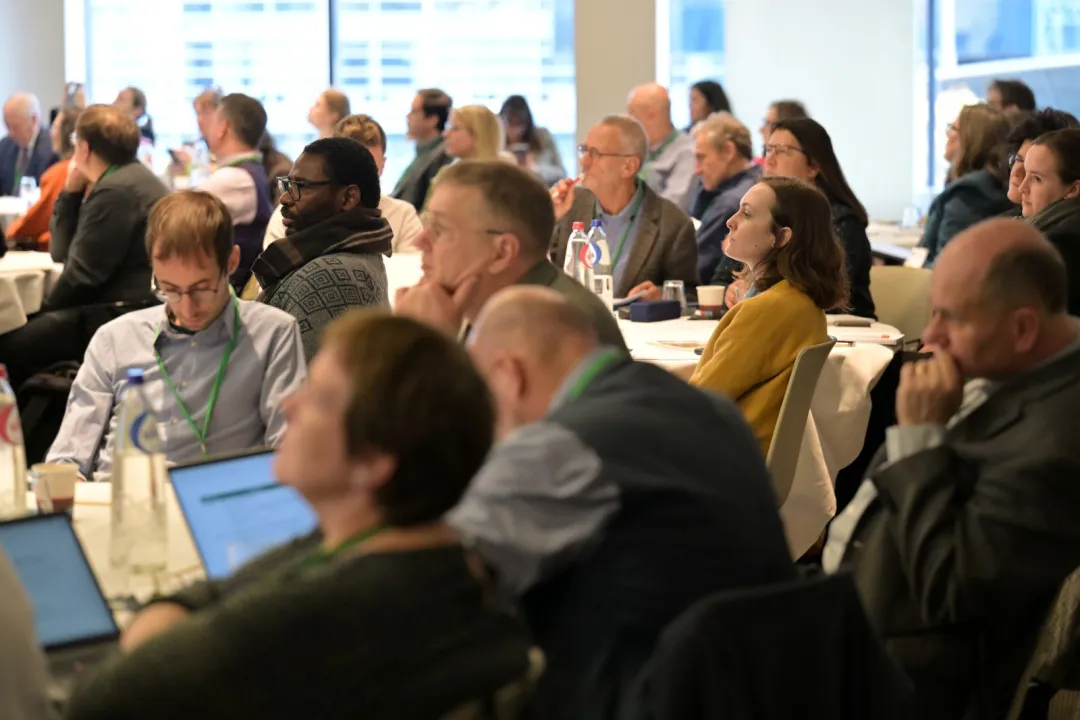Rural Pact Policy Lab calls for a strong rural focus in post-2027 EU framework
- Rural Pact
- Rural Revitalisation Platform
- Stronger Rural Areas
- Connected rural areas
- Resilient rural areas
- Prosperous rural areas
Europe’s rural areas must remain central in the upcoming EU policy and budget framework, highlighted the Rural Pact Policy Lab ‘Rural areas and communities in the post-2027 EU budget and policies’ of 5 November. The event brought together over 100 representatives from EU institutions, national and regional authorities, and civil society to exchange on how future EU policies can best support vibrant, resilient and inclusive rural territories.

© European Union, 2025
Discover the Policy Lab video recordings and speaker presentations. The highlights report will be made available in the coming weeks.
Rural development as a long-term investment
The Policy Lab highlighted that the EU’s next Multiannual Financial Framework (MFF) must build on the lessons of the 2021–2027 period and keep rural development as a long-term strategic investment domain for the future of Europe. Rural areas are integral to Europe’s green, digital and demographic transitions, providing solutions in food and energy security, biodiversity protection, and social cohesion.
The Common Agricultural Policy (CAP) will continue to play a key role, but its future must be linked more closely with cohesion policy, competitiveness, and research and innovation instruments, ensuring a more integrated and place-based approach to rural development. "We can frame rural areas as centres of resilience, which is a key part of many national policies. In that way, cohesion and competitiveness are not two separate things – if we are competitive in rural areas, we contribute to cohesion, and vice versa," said keynote speaker Kai Böhme, Spatial Foresight.
This was echoed by calls to ring-fence sufficient financial resources for rural development and for stronger synergies between funds and simpler procedures in the post-2027 EU framework. “Without ring-fenced funding and binding commitments, they [LEADER and CLLD] become optional add-ons rather than core instruments of local empowerment,” said European Economic and Social Committee member Lidija Pavić-Rogošić.
Linking ambition with delivery
The European Commission flagged that the new legislative proposals for the 2028–2034 MFF and EU policies aim to align all EU funding with a coherent set of strategic objectives, while simplifying access and promoting a more flexible use of resources across policy areas. The objectives include reducing territorial disparities and improving living conditions in rural areas.
Proposals further include provisions requiring Member States to demonstrate a more integrated approach through national strategies for the development of rural areas, including promoting territorial cooperation and innovation.
Importantly, the success of the next policy cycle will depend on governance, not only on financial allocations. A more targeted steering of the National and Regional Partnership (NRP) plans’ elaboration is essential. This includes the use of CAP recommendations and the European Semester, as well as better coordination between national, regional and local levels.
Stronger partnerships between managing authorities, regions and communities are also needed. Together, these elements will make rural policy more efficient and more responsive to local realities. They will also help ensure that future plans are rural proofed and contribute to the shared goals of the EU rural vision 2040.
Empowering local and regional action
The event reaffirmed that empowered local actors are essential to turning policy into results. A renewed commitment to LEADER and Community-led Local Development (CLLD) is needed for these tested delivery mechanisms for place-based innovation and inclusion. Ensuring that these tools are adequately financed, with access to funding covering multiple policy domains in the next MFF, is key to enabling integrated territorial strategies.
Additionally, enhanced capacity building, networking, and technical assistance are needed to help local partnerships, municipalities and civil society organisations fully engage with EU programmes. Reducing administrative complexity, clarifying terminology and simplifying reporting are practical steps to make funding more accessible and impactful.
Public authorities take concrete action for the rural vision through the Rural Pact
The Policy Lab also marked a milestone in strengthening political engagement under the EU Rural Pact, acknowledging the growing number of Member States and regions that have made formal commitments to advance the EU rural vision. The commitments made by public authorities of Czechia, the Spanish regions Castilla-La Mancha and Catalonia, and the Polish Opole region were formally recognised for taking action to integrate the vision’s goals into their future programmes and policies.
The session highlighted the Rural Pact’s role as a multi-level platform that connects European, national, regional, and local actors in shaping the future of rural territories.
Looking ahead
The event concluded that rural development must be recognised as a cross-cutting European priority, integral to achieving cohesion, competitiveness and sustainability. The upcoming post-2027 policy and budget negotiations are a key opportunity to embed rural perspectives across all EU policies, with calls for stronger coordination, long-term investment and trust-based partnerships to empower rural communities in shaping Europe’s future transitions.